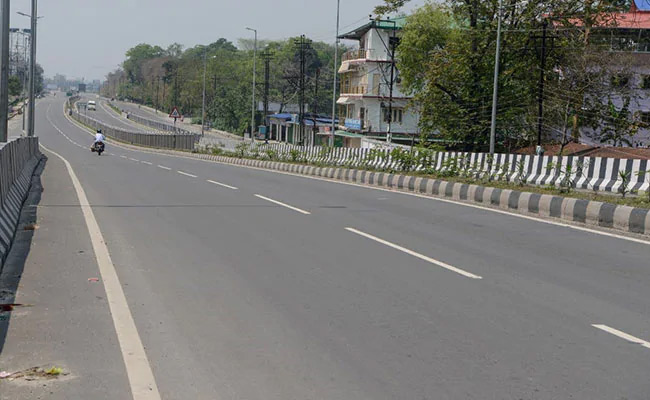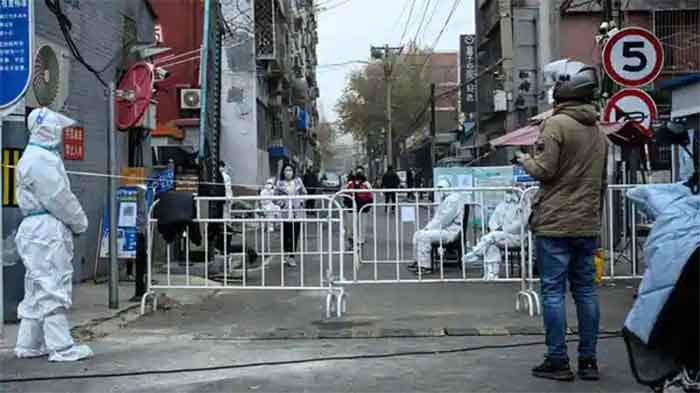
In 2020 the overall experience of extended and stringent lockdowns on the whole was quite negative, although the official view supported by some experts remains that these were necessary and useful in saving several precious human lives. Hence the entire issue of lockdowns is quite a divisive one, in India as well in several other countries. Now that in the middle of reports of much increased incidence and mortality of COVID-19 the option of lockdown is back in favor among several important policy makers in India as well in some other countries, it needs to be emphasized that lockdown decisions must be based on very careful appraisal of reliable data.
A key question here relates to mortality data not just of COVID-19 but also of other important diseases and ailments as well as overall mortality data. Another aspect on which reliability of data is needed is the extent to which mortality relating to all diseases, ailments, deprivations and accidents is affected by lockdown conditions.
Last year total reported deaths in India were around 27000 deaths per day while total COVID 19 deaths were about 310 per day. Let us assume that lockdowns succeed in reducing possible COVID mortality by 33% per cent but the resulting conditions lead to increase in mortality by other causes by 10%. In such a situation a lockdown will lead to reduction of about 100 COVID deaths in a day while there may be overall increase of 2700 deaths! However the second aspect will not be reported on daily basis as there is no daily reporting of overall mortality whereas there is daily monitoring and reporting of COVID deaths.
However some people may say that we need a comparison with the COVID mortality not of last year but of very recent days which is around 1200 per day. If such figures are used, then we get a reduction of COVID mortality of 400 per day, on the basis of assuming a 33% decline by lockdown.
We may also make a comparison with some more specific causes of death. Last year the COVID related mortality was around 310 per day in India, while deaths due to TB were around 1200 per day and child pneumonia deaths were around 400 per day. If the lockdowns resulted in a 33% reduction in COVID deaths but 10% rise in the mortality by these two diseases, then leaving all other diseases also we get a reduction of 100 COVID deaths per day and increase of 160 deaths related to the two other diseases.
Nevertheless the supporters of lockdown may argue that the likely COVID deaths in the absence of COVID may have been so great that lockdowns were justified and are justified even more today. Such claims need to be backed by more authentic and reliable estimates of likely mortality in a non-lockout scenario.
Needless to add, all such estimates require the reliability and credibility of basic raw data. Some people are horrified when pictures appear in media regarding more than usual activity at places where last rites are performed and immediately conclude that covid mortality is higher even than official estimates without asking more relevant questions. On the other hand there are statements by several senior scientists at world level which say that covid deaths may have been over-estimated due to the mistake of merely treating the presence of the virus in a dead person as the cause, or the main cause, of morbidity. This in particular may not be true in many cases of co-morbidity, all the more so in cases of very elderly persons.
A comparison that may be relevant is a comparison of experience of Sweden, which did not opt for lockdowns last year, with the experience of other countries of Europe which opted for lockdowns. Overall the trend in such comparisons is that the mortality due to COVID alone may be somewhat higher in Sweden but overall excess mortality may be higher in other countries as the regular treatment of other diseases and ailments is affected by lockdown.
Such overall excess mortality may be much higher in poor countries like India with weaker health systems, high prevalence of many life-threatening diseases, serious problems of hunger and huge presence of vulnerable groups like migrant workers, as was revealed all too clearly in the lockdowns imposed last year.
Hence there is clearly a compelling need to identify the most critical aspects and to ask the most relevant questions in these difficult and uncertain times. On this basis we need to seek answers and collect data which will be most useful for planning the best policy options. Also now the need for ensuring the reliability of data is even more than in normal times. There is need for ensuring that completely unbiased data are collected and a completely unbiased picture based on this is presented and also made available in the public domain.
In this way the government will be able to take the best policy decisions, independent well-informed comments on these may be available and we will thus have an unbiased, efficient and transparent system to go ahead in difficult times of uncertainties.
There should be no suppression of dissenting viewpoints, and particularly if these come from those with a good previous record, these should be heard as hearing many views in a democratic way is always good for the ability to make the best policy choices. This is what we need.
However to reduce the distress and uncertainty of people in difficult times, a number of other steps to provide relief to people should also be taken, focused on those who face the most difficulties, with a sense of urgency.
Unfortunately, due to wrong policies, difficulties relating to protecting even subsistence income and livelihoods have been increasing steadily for some of those sections of society who are considered to be very vulnerable. Sadly, special help measures such as free supply of foodgrain and some pulses were stopped pre-maturely in November. Now that with on-going procurement there is even more excess stock in our granaries than before , we should not hesitate to restore this free supply of grain very soon to vulnerable sections.
Bharat Dogra is journalist and author. His latest books include Protecting Earth for Children and Planet in Peril.
GET COUNTERCURRENTS DAILY NEWSLETTER STRAIGHT TO YOUR INBOX














































